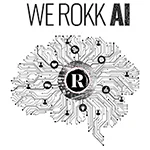 Ronn Torossian |
Yet, to hear Apple and its users tell it, what could be more popular than an iPhone or more desirable than a Mac? So, how does the company achieve this, when it actually only owns a meager four percent of the market? Why, through exceptional PR, of course!
The company has nailed almost every launch, even when new devices emerge with very few changes from their predecessors. It’s become less about the device for Apple and more about the Apple-user-culture and style.
With that reputation behind them, here’s what Apple can teach us about public relations.
Press releases
As PR moves into a more digital era — plagued with hackers who leak sensitive information before their time — many people believe the press release practice is dying. But the press release is one thing Apple still uses to its benefit. In fact, before his passing, Steve Jobs allegedly approved every press release before they went to journalists and publishers.
According to a Harvard article, “Jobs used his press releases to reinforce the single adjective he used for every Apple product (‘magical’ iPad, ‘revolutionary’ iPhone and ‘legendary’ App Store).”
Legendary launches
Apple is known as one of the most secretive companies when it comes to product design. People can speculate as much as they like — which is what the company wants — but no one will know for sure what features an iPhone will have until the launch. This secrecy forces people to keep an eye out for the launch itself, pulling all eyes to the company and boosting visibility.
Greener grass
Whether it’s journalists or customers, people want most what they cannot have. It’s the simple concept of the grass always being greener on the other side, and the company holds this dear. To this end, Apple often restricts media access to top executives, and usually only gives favored journalists, first-access to any information the company may share, or even “leak” intentionally.
Consumer culture
Successful brands know how to develop a persona, and it almost immediately pops into one’s head when considering the brand. Sometimes the brand is influenced by the charisma or celebrity status of the owner, and other times by its actions.
Google is king of the techies and tech rebels, while Apple is the trendy cool kid on the block with a daddy that can sue your pants off. In a culture increasingly infatuated with wealth and celebrity lifestyle, this attracts many users who want to associate themselves with style and prestige.
Apple, though an underdog, is a tech giant in its own right. Through its small share of the market, the company has amassed profits and cash reserves twice that of the U.S. government. Apple teaches PR experts that market share does not always define success, because even in business, often “less is more.”
* * *
Ronn Torossian is the CEO of 5W Public Relations/5WPR which is one of the leading independent PR firms in the United States.


 Laura Anderson, who rose to VP/GM of global communications and events in a nearly 20 year stint at Intel, will take on the Americas technology chair at Burson following the completion of the BCW and H+K merger on July 1.
Laura Anderson, who rose to VP/GM of global communications and events in a nearly 20 year stint at Intel, will take on the Americas technology chair at Burson following the completion of the BCW and H+K merger on July 1. WE Communications has partnered with ROKK Solutions to form the WE ROKK AI service.
WE Communications has partnered with ROKK Solutions to form the WE ROKK AI service. In the dynamic world of modern business, effective communication is a pivotal tool for success across various industries. At Communications Strategy Group (CSG®), our expertise in embracing innovation in communication extends beyond traditional marketing strategies, paving the way for transformative industry-specific solutions.
In the dynamic world of modern business, effective communication is a pivotal tool for success across various industries. At Communications Strategy Group (CSG®), our expertise in embracing innovation in communication extends beyond traditional marketing strategies, paving the way for transformative industry-specific solutions. There are two types of tech PR professionals. Which one are you? And are C-suite executives making that decision for you?
There are two types of tech PR professionals. Which one are you? And are C-suite executives making that decision for you? While there’s an impulse to grab reporters’ attention with the newest industry-transforming tech product or service, a back-to-basics approach focused on telling the right stories to the right people is a far more successful way to ensure your technology campaign breaks through the clutter of today’s crowded tech landscape.
While there’s an impulse to grab reporters’ attention with the newest industry-transforming tech product or service, a back-to-basics approach focused on telling the right stories to the right people is a far more successful way to ensure your technology campaign breaks through the clutter of today’s crowded tech landscape.


 Have a comment? Send it to
Have a comment? Send it to 
No comments have been submitted for this story yet.